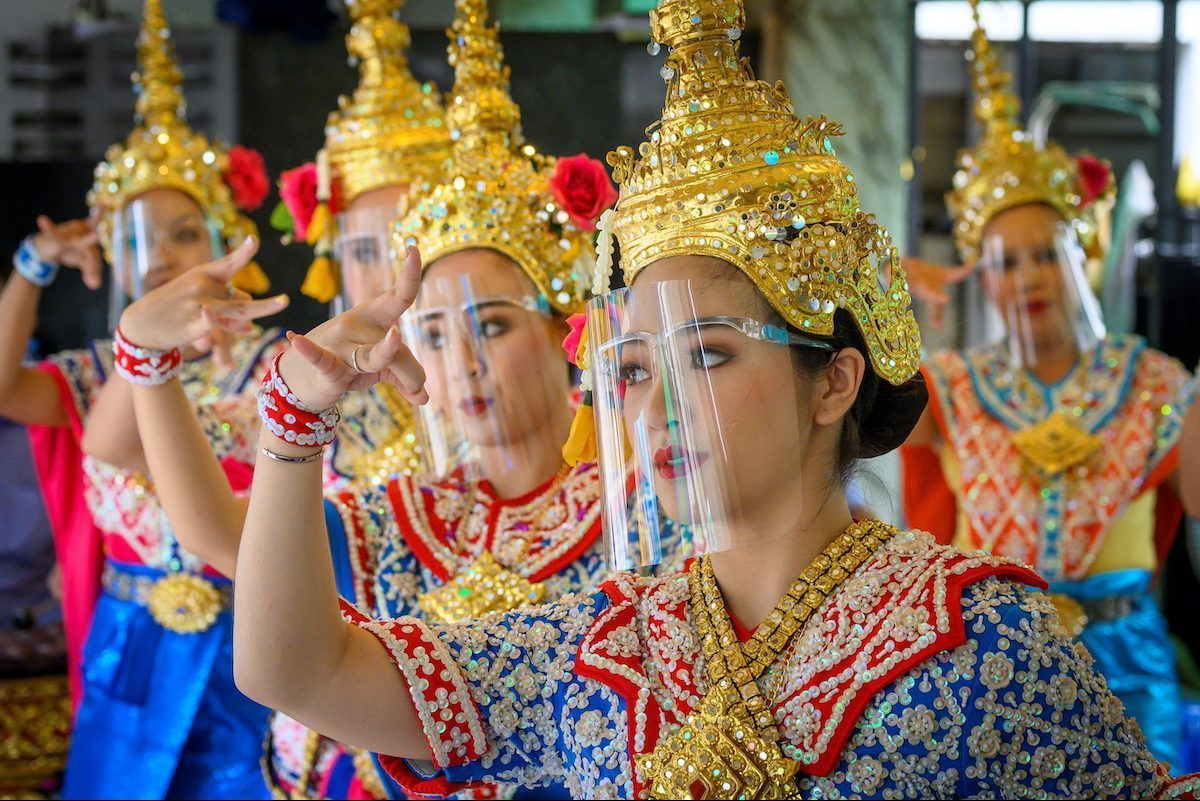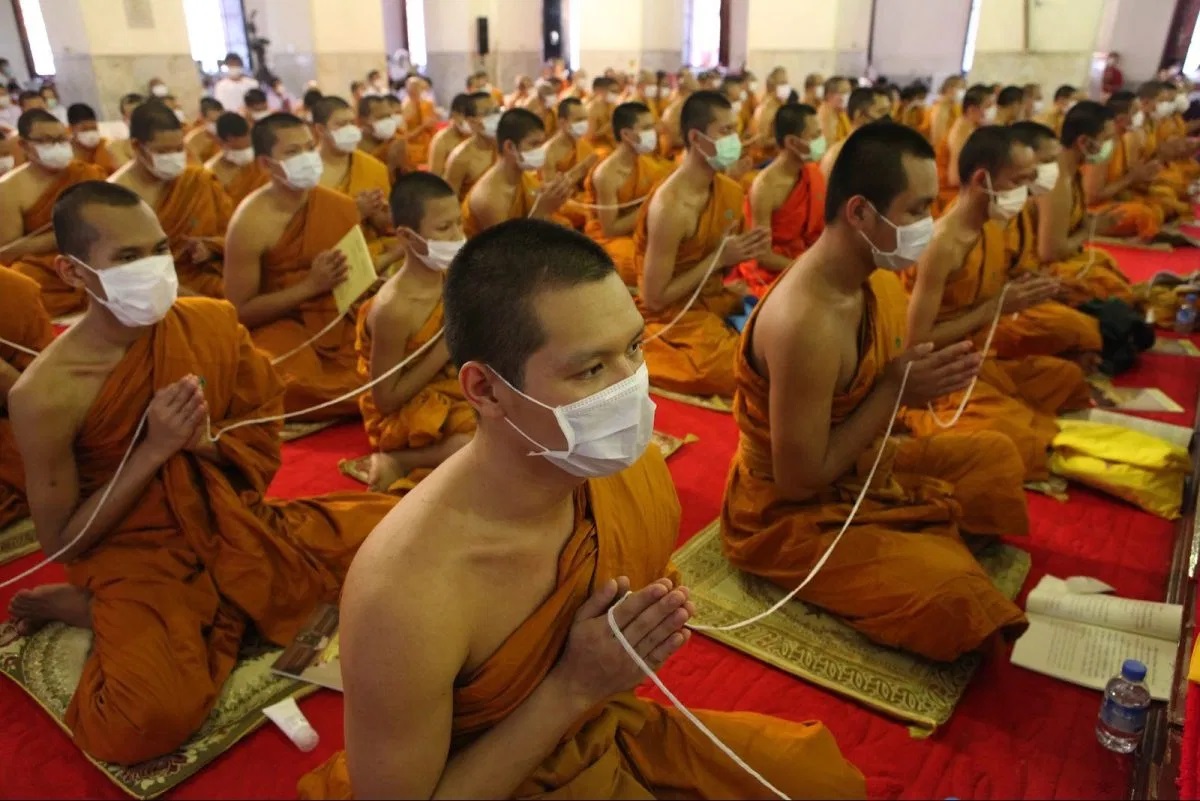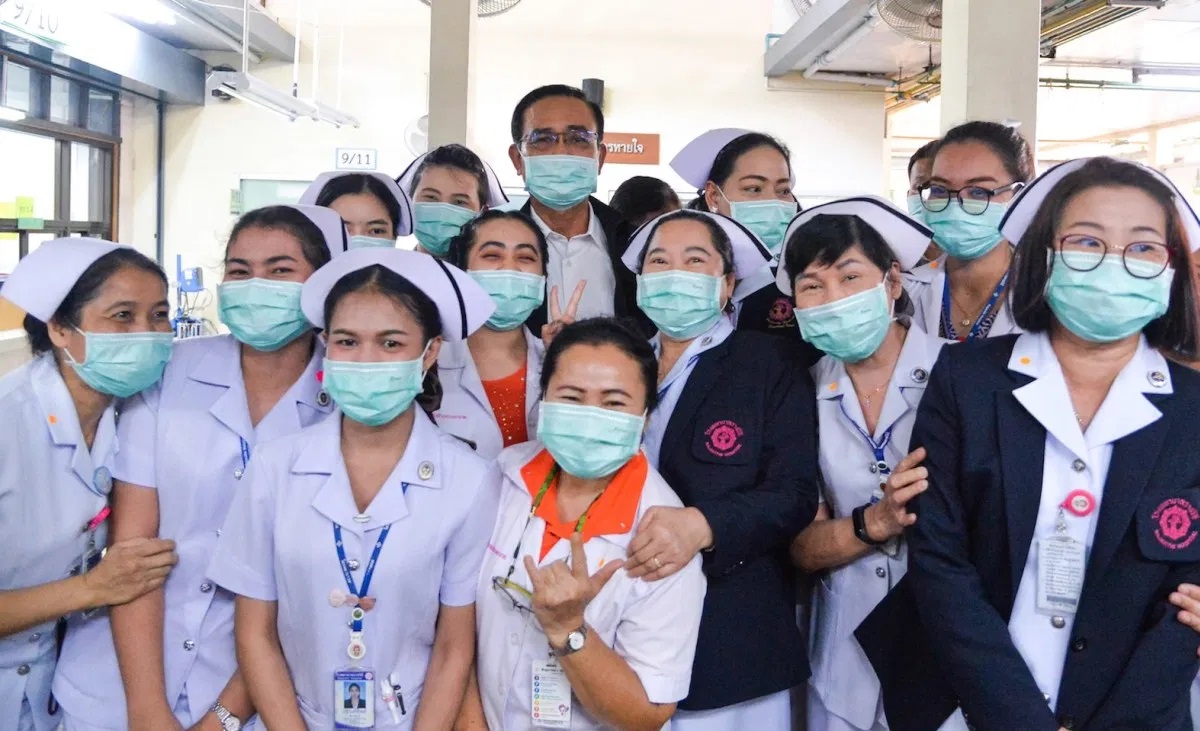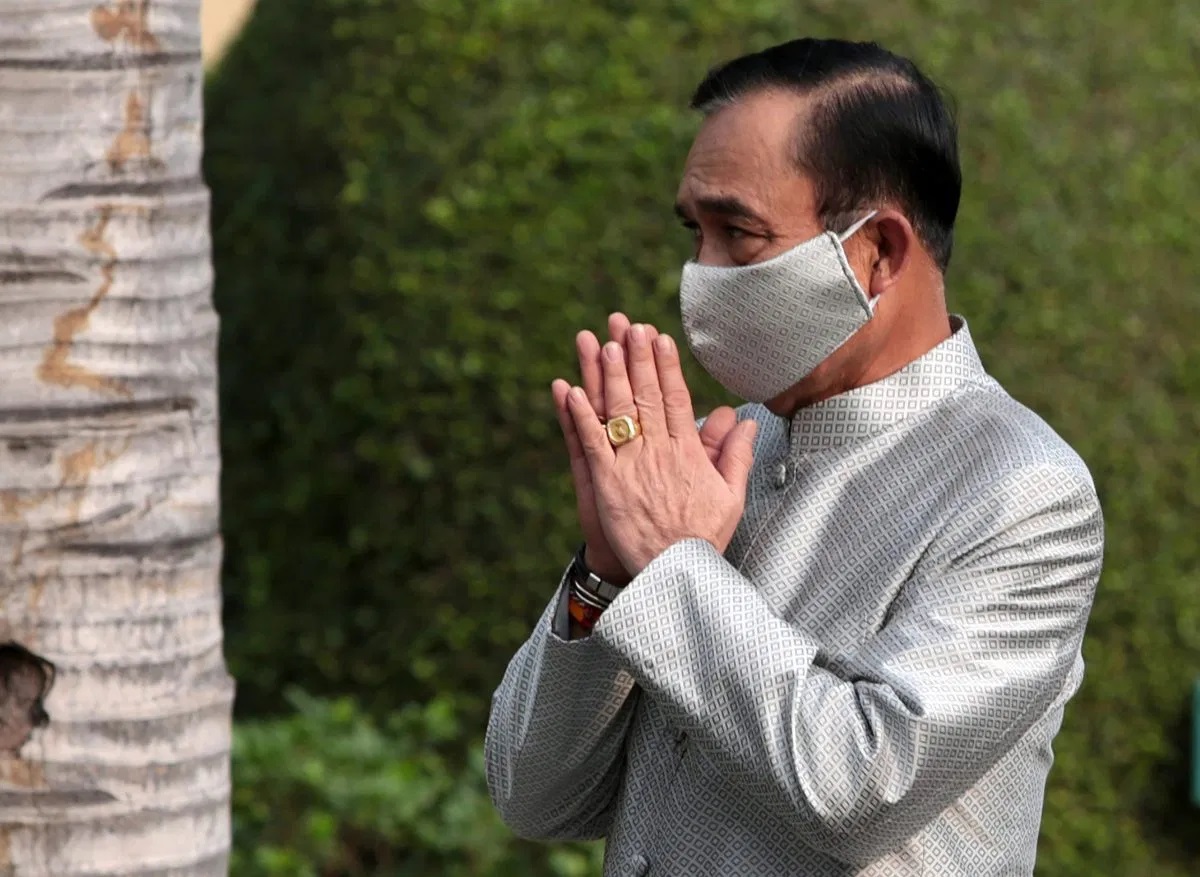
BANGKOK – When a Chinese tourist was diagnosed with the Covid-19 coronavirus on January 13, the first known infection outside of China before the disease made its fatal global sweep, Thailand would have seemed a likely locale for mass contagion and mortality.
Hundreds of thousands of Chinese tourists descended on the kingdom over the Lunar New Year holiday, a time when the deadly virus and its contagiousness were barely understood. Prioritizing tourism over health, Thailand’s government left its borders open to China and the wider world.
But when a respected physician at the royally affiliated Siriraj Hospital projected on March 26 that Thailand would have 350,000 cases and 7,000 deaths by mid-April without social distancing, Prime Minister Prayut Chan-ocha invoked emergency rule, centralized crisis management and phased in hard lockdown measures, many of which remain in place.
Prayut’s strongman move, reminiscent of his previous coup-installed military government, sidelined elected politicians who overtly lacked expertise in public health and crisis management, and empowered bureaucrats and medical professionals to command, lead and communicate his government’s Covid-19 response.
Almost instantly, Thailand’s reported daily infections trended down from a high of 188 on March 22, then rising at an exponential upward 33% clip, to zero reported new cases on May 24. The kingdom has been comparatively lightly touched by the virus compared to many of its Southeast Asian neighbors with just 3,045 cases and 57 deaths as of May 26.
While analysts, experts and diplomats view Thailand’s official figures with a measure of skepticism, due chiefly to a lack of widespread and systematic testing, few if any believe officials are involved in a deliberate cover-up to hide cases, mask deaths or portray the nation in a comparatively favorable light.

Mask-clad Buddhist monks at Bangkok’s Maha That Yuwarat Rangsarit temple amid the Covid-19 epidemic. Photo: AFP Forum via Bangkok Post/Arnun Chonmahatrakool
Indeed, there have been no reports of any hospitals being overwhelmed with virus patients, nor has there been any discernible surge in pneumonia or other fatal illnesses that could be Covid-19 related, diplomats and experts say. With a relatively free press and an even freer social media, officials would be hard-pressed to censor or hide any sudden rash of cases.
While researchers and scientists grapple with why some countries have been more hard hit than others, with governance, health care, culture and climate all under study as possible determinants, Thailand’s so far mild Covid-19 experience likely owes to a uniquely Thai mix of factors.
Those include a successful appeal to Thai nationalism that has underwritten consensus compliance, where stay-at-home and social distancing orders have been portrayed and obeyed as patriotic duty. That’s seen in near universal adoption of mask-wearing, with resident Westerners often the only maskless outliers.
Thailand’s tentative success could also owe in part to culture, as Thais traditionally greet without touching through prayer-like, palm-pressed wais. A Buddhism-inspired reticence, witnessed on often eerily silent public transit buses and trains, has also arguably helped to keep aspirated viral contagion out of the air.
More clinically, Thailand’s universal public health care system is a regional, if not global, role model, with low-cost medical treatment available nearly nationwide. That includes village- level rural health volunteers who even in non-pandemic times have their fingers on the health pulse of local communities.
To be sure, Thailand’s relative Covid-19 success is not yet firmly evidence-based, health experts note. One ex-World Health Organization official views Thailand’s Covid-19 case count as “amplified anecdotal” data, due to a lack of systematic and targeted testing. Thailand has tested around 376,000 in a nation of nearly 70 million.
“Nobody knows the who, when, why or where of the tests and without that specificity we are still whistling in the dark” on the true extent of the situation, he said. “The absence of evidence is not the same as the evidence of absence.”

Thai Prime Minister Prayut Chan-O-Cha (C-Back) in a face mask posing with nurses while visiting Rajavithi Hospital where patients are undergoing treatment for the Covid-19 coronavirus in Bangkok, March 20, 2020. Photo: AFP via Royal Thai Government
That includes among Thailand’s foreign migrant community who often live in less hygienic and more cramped quarters than the Singapore dormitories that have unleashed a “second wave” of new infections in a city-state that was likewise previously portrayed as a Covid-19 success story but is now viewed as cautionary tale.
Neighboring Malaysia is now also grappling with a surge of new cases among its foreign migrant population. Estimates vary but anywhere between four to five million migrant workers normally live and work in Thailand, though many returned to Myanmar and Cambodia when the kingdom locked down in March.
Experts say Thailand needs more systematic targeted surveillance, as opposed to limited testing of symptomatic patients, to get a firm grip on the true extent of its outbreak. A Thai public health official, however, acknowledged reluctantly in a recent webinar for journalists that the government lacked the resources for such extensive monitoring.
To be sure, Thailand has marshaled fast and successful responses to past major health crises. The ex-WHO official recalls how rotating deployments of medical students sent to the site of the kingdom’s 2004 tsunami disaster helped to avert deaths beyond those caused by the killer wave.
He also notes a lesser known case in 2006 where public health officials rapidly ring-fenced, contained and treated what was one of the world’s largest ever botulism outbreaks affecting over 200 people caused by spoiled edible bamboo shoots in the northern province of Nan.
Thailand’s virus response has not been entirely home-grown, however. One official close to Prayut believes Thailand’s success so far derives in part from cooperation with China, which he says has offered discreet medical advice on how to treat patients based on lessons learned in containing its outbreak in Wuhan City, the disease’s initial epicenter.

Prime Minister Prayut Chan-ocha at Government House in Bangkok on March 17, 2020. Photo: AFP via Bangkok Post/Chanat Katanyu
Still, analysts agree that Prayut deserves certain credit for steering a firm and coherent after an initially erratic virus response.
While opposition politicians have sought in spots to politicize the outbreak and its management, its not clear to most observers they have offered better prescriptions than those being pursued by Prayut’s trusted technocrats.
Prayut will have a much harder time maintaining his success story narrative as the kingdom emerges out of lockdown to face the pandemic’s economic devastation, with the central bank projecting -5.3% economic growth and some private banking analysts predicting an even worse -8%.
The contraction could pinch even harder if tourism, accounting for as much as 20% of GDP in good times, doesn’t rebound by the December-January high season, when global travelers traditionally descend in their millions on the country’s many idyllic beach destinations. Obviously, the future of exotic leisure travel is in near-term doubt.
Still, Prayut is under rising political and economic pressure to ease the lockdown and reopen the country’s closed borders. His government’s phased easing measures notably coincide with the start of the rainy season, when Thais often catch cold or contract the flu as the weather shifts from blazing hot to steamy damp.
But any Covid-19 second wave attributed to new community infections or inbound travelers would be a public relations disaster for a nation that relies so heavily on the outside world for its growth and prosperity. Prayut can take some credit for Thailand’s Covid-19 success story, for now, but his victory lap will likely be short-lived.